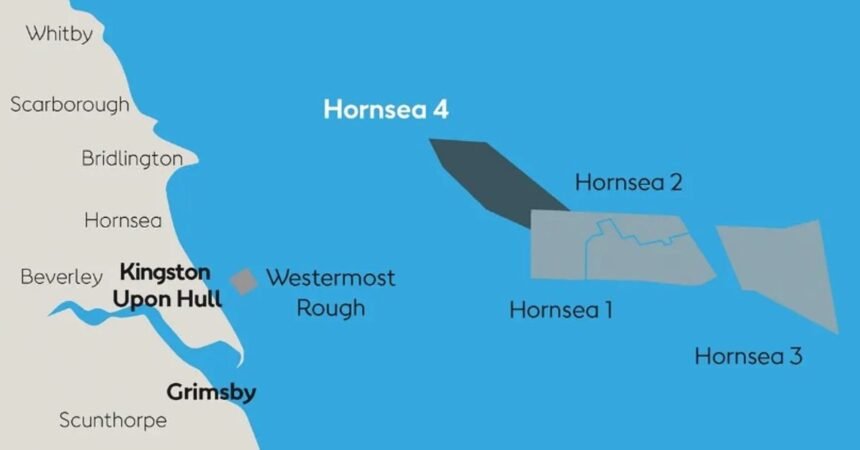Danish energy giant Ørsted has announced the cancellation of its plans for the Hornsea 4 offshore wind farm, dealing a significant blow to the UK’s renewable energy ambitions. The project, which would have been one of the largest offshore wind farms in the world at 2.4 gigawatts, has been abandoned due to adverse macroeconomic developments, supply chain challenges, and increased market risks.
The decision to cancel Hornsea 4 is expected to result in a loss of up to 5.5 billion Danish crowns for Ørsted, as the company grapples with a decline in market value and financial instability. This cancellation underscores the challenges facing offshore wind development in Europe, particularly in the UK, where higher material costs and inflation have made large-scale renewable projects increasingly difficult to finance.
The UK government has expressed its commitment to renewable energy and has pledged to work closely with industry leaders to overcome financial and logistical obstacles. Energy Secretary Ed Miliband has stated that the UK is still determined to work with Ørsted to try to make Hornsea 4 a reality by 2030.
Despite the setback with Hornsea 4, Ørsted remains committed to its other UK-based projects, including the Hornsea 3 wind farm, which is expected to generate around 2.9 GW of electricity once completed. The company emphasized the importance of policy support and economic stability in ensuring the success of future renewable energy developments in the UK.
The cancellation of Hornsea 4 serves as a reminder that even flagship renewable projects are vulnerable to economic pressures and global uncertainties. It highlights the need for a stable and supportive environment for the renewable energy sector to thrive and contribute to the UK’s transition away from fossil fuels.
In conclusion, the cancellation of Hornsea 4 is a setback for the UK’s energy transition goals, but it also underscores the challenges facing the renewable energy sector in the current economic climate. As the UK government and industry leaders work to address these challenges, the future of offshore wind development in the UK remains uncertain.







